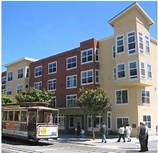-
 Navigating the Complex Landscape of Commercial Lending: Recent Trends and Insights Explore recent trends and insights in commercial lending, including increased demand, sustainability focus, and digital transformation impacting lenders and borrowers in the current market.
Navigating the Complex Landscape of Commercial Lending: Recent Trends and Insights Explore recent trends and insights in commercial lending, including increased demand, sustainability focus, and digital transformation impacting lenders and borrowers in the current market.
HomeStreet to Sell Loan Centers, MSA Holdings
- Friday, 15 February 2019
- Lending

Homestreet Inc. has retained Keefe, Bruyette & Woods to seek buyers to acquire its stand-alone home loan centers .
Also, the Company has retained MountainView Transaction Advisory LLC to seek buyers for the majority of its single-family mortgage servicing rights principally related to loans originated by those home loan centers and personnel.
These moves could “free up more than $100 million of capital, simplify operations, allow for meaningful cost reductions and lead to significantly higher returns on capital,” according to Blue Lion Capital.
Once the sales are completed, HomeStreet expects to retain a smaller mortgage operation integrated with the commercial and consumer banking business, with originations sourced through the branch network, online banking services and affinity relationships.
“The board made the difficult decision to explore the potential sale of our mortgage banking business after extensive deliberations, ultimately concluding that this potential change would be in the best long-term interests of the company and its shareholders,” said Mark K. Mason, chairman, president, and chief executive officer of HomeStreet. “We are considering a sale at this time after having taken substantial steps in the last two years to improve the profitability of our mortgage banking business while expecting a near term recovery in industry volume and profitability. Unfortunately, it is still unclear when, and to what extent, industry conditions will improve.
HomeStreet will continue to offer mortgages, but on a far smaller scale, and focused on the retail deposit network and regional markets and positioned for ongoing profitability.
HomeStreet made the decision to sell because increased interest rates reduced the demand for refinance mortgages, and higher home prices have decreased the affordability of home purchases. These factors continue to put downward pressure on mortgage origination volumes. In addition, historically low new and resale home inventories in many of HomeStreet’s primary markets continue to adversely impact the volume of available purchase mortgages.
Further, the challenging regulatory environment, including changes to loan underwriting and disclosure rules and increased data integrity requirements, have combined with higher loan officer compensation to increase loan-origination costs. Non-bank lenders are regulated by different regulators with different approaches to compliance and regulatory oversight than bank mortgage lenders. This condition has resulted in uneven compliance interpretations, guidance, and enforcement risks between banks and non-bank lenders.
In addition, in September 2017, the banking regulators proposed a rule to simplify and reduce the capital burden for banks holding mortgage-servicing assets.
A final rule, however, has not been published, and given the recent proposal of a community bank leverage ratio which omits the expected capital relief for such assets, HomeStreet no longer expects the proposed rule to reduce the capital burden for banks holding mortgage servicing assets to be enacted or implemented.
The regulatory capital required for holding mortgage servicing assets is onerous, and in conjunction with declining hedge profitability as a result of a flattening yield curve, the return on invested capital in this line of business has been adversely impacted.
Read more...Commerce Home Mortgage Is Now a Member of FHLB
- Thursday, 14 February 2019
- Lending

Commerce Home Mortgage LLC has become a member of the Federal Home Loan Bank of San Francisco. In addition, it is one of the few independent mortgage companies that is approved with Fannie Mae, Freddie Mac, Ginnie Mae, and has been certified as a community development financial institution. Membership in the FHLB system offers many of the benefits traditionally enjoyed by banks. Commerce now offers a truly differentiated platform for top- mortgage originators,” said Ted Ray, president of Commerce, a subsidiary of The Capital Corps LLC. “As we move forward, we expect that our FHLB membership will enable us to expand the spectrum of proprietary mortgage products which we are able to offer borrowers.”
The FHLB’s financial products and services are recognized as among the most cost-effective and versatile in the industry, as the FHLB is able to raise funds at rates that are close to Treasury security yields.
The FHLB seeks to enable families and individuals of all income levels to obtain quality housing and become homeowners through services that help member organizations expand the availability of mortgage credit, compete more effectively, and foster strong and vibrant communities through community and economic development.
“Commerce’s FHLB membership will allow us to do great things for diverse, underserved borrowers and communities by expanding relationships with and providing good loans to minority and underbanked borrowers,” said Faith Bautista, chair of Commerce’s Community Advisory Board and chief executive officer of the National Diversity Coalition. “Being a FHLB member with the ability to utilize the FHLB’s full suite of products and services will help us do just that.”
Commerce provides a full range of both traditional and non-traditional mortgage programs. Its newly launched, proprietary portfolio products are perfectly suited for prime borrowers who are underbanked, self-employed or require flexible, common sense underwriting of the loan.
Read more...KeyBank Has Deployed Black Knight's MSP
- Tuesday, 12 February 2019
- Lending

KeyBank has implemented the Black Knight MSP servicing system for its mortgage portfolio. The aim was to drive efficiency and improve risk management at the bank.
MSP delivers a scalable system, which helps clients manage all servicing processes--from payment processing to escrow administration, customer service, and default management. It was engineered to support almost any size portfolio and includes client support services.
Also, the bank deployed components of the new Black Knight Actionable Intelligence Platform to help the bank proactively monitor and manage its servicing portfolio through the use of strategic, proactive analytics.
"As a result of the Black Knight team's extensive servicing experience and skillful execution, the entire implementation process was [well] planned and managed," said Amy Brady, CIO, KeyBank. "Black Knight's ability to support our growing servicing operations and help enhance our compliance processes, were important factors in our decision to expand our current relationship with Black Knight."
The Black Knight AIP is a unified framework for delivering strategic, proactive and actionable analytics to the right people within an organization at the right time, so they know the right actions to initiate next.
The AIP components that were deployed are Portfolio Insight Suite, which helps servicers monitor and manage their operations through the use of key performance metrics, and Lien Alert, which provides servicers with instant notifications about key lien-related indicators. Also, KeyBank will use Black Knight McDash, providing data and analytics capability on a majority of active mortgages as well as historical data on 180 million first-mortgage loans and more than 20 million home equity loans.
Read more...Report: Millennials Chose Purchase Loans
- Monday, 11 February 2019
- Lending

Millennials closed more purchased loans in December 2018, even in the face of higher-interest rates and fewer homes.
[caption id="attachment_9345" align="alignright" width="200"] Tyrell: Most Millennials were single when they bought homes.[/caption]
Tyrell: Most Millennials were single when they bought homes.[/caption]
“Many Millennials are prioritizing homeownership and rather than being deterred by a tight market, they’re increasingly competing for available homes or moving to areas where inventory is more robust,” said Joe Tyrell, executive vice president of corporate strategy for Ellie Mae.
According to the latest Ellie Mae Millennial Tracker, share of purchase loans rose 4 percent, accounting for 88 percent of all loans closed by members of the generation in December, compared to 84 percent for the same month in 2017.
With interest rates for all 30-year loans reaching 5.12 percent on average, the highest since Ellie Mae began tracking this data in 2016, refinance rates dropped 5 percent year-over-year, comprising 10 percent of all closed loans in December 2018.
For all loans closed by Millennials in December 2018, 68 percent were Conventional, and 27 percent were Federal Housing Administration, Veterans Affairs were 2 percent, and other loans accounted for 3 percent. The share of Conventional purchase loans increased to 87 percent, from 80 percent, between December 2017 to December 2018.
“The average age for a Millennial homebuyer in December was 29.5 years old, the lowest for any month in 2018,” said Tyrell. “This may be driven in part by younger borrowers who no longer feel the need to wait for a typical life event like marriage before buying a home. In fact, from 2016 to 2018, 63 percent of borrowers between the age of 20 and 29 were single when they closed their loans.”
Other takeaways from the report, include the following:
- Thirty-year rates on both Conventional (5.09 percent) and Veterans Affairs (4.86 percent) loans reached their highest mark since Ellie Mae began tracking the data in 2016. Average FHA loan rates remained at their highest point in December at 5.18 percent, matching the average figure from November 2018.
- The average FICO score for Millennial borrowers on all closed loans dropped to 721, from 722 in December 2017.
- On average, all home loans closed in 43 days, the same as the previous year. Refinance loans closed in 46 days, up 1 day from 45 in December 2017. Purchase loans closed in 41 days in December 2018, compared to 42 days the previous December.
- Millennial males (both single and married) were listed as the primary borrower on 60 percent of closed loans in December. Women were listed on 32 percent and the remainder of closed loans did not specify primary borrower gender.
- For all closed loans in December 2018, 52 percent of Millennial borrowers were married while 48 percent were single. These figures were flat from December 2017.








